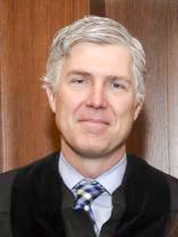Clean Air Act
The Changing Landscape of Climate Policy
Even under Trump, the U.S. was slowly lurching in the right direction. Biden needs to give the process a good strong push.
Barring a Democratic sweep in the Georgia runoffs, Biden will be facing a Republican Senate. But he also has a big advantage: The world has changed in some important ways that favor climate action. The importance of these positive changes may have been obscured by some negative developments. Since Barack Obama left office, climate change …
Continue reading “The Changing Landscape of Climate Policy”
CONTINUE READINGShort and Simple Climate Legislation
With a few sentences, Congress could do a lot to fix the law.
The last time Congress tried to pass climate change legislation, the bill was about 800 pages long. That bill, the Waxman-Markey Act, tried to adopt a comprehensive set of emissions reduction measures, which is a complicated business. But a much simpler law could allow the U.S. to move forward quickly with less ambitious but still …
Continue reading “Short and Simple Climate Legislation”
CONTINUE READINGTrump’s ACE Rule Hits a Judicial Speed Bump
The judges seemed skeptical of Trump’s Affordable Clean Energy rule last week
The D.C. Circuit Court of Appeals heard oral arguments about Trump’s Affordable Clean Energy (ACE) rule last week. The ACE rule is a feeble substitute for Obama’s Clean Power Rule, which was Obama’s signature climate action regulating power plants. The argument went badly for the Trump folks. Even Judge Justin Walker, a 38-year-old whose main …
Continue reading “Trump’s ACE Rule Hits a Judicial Speed Bump”
CONTINUE READINGFighting to Preserve California Vehicle Emission Standards
Ted Lamm and Sean Hecht Co-Author Amicus Brief on Behalf of National Parks Groups
Last week, Sean Hecht and I filed an amicus brief with the DC Circuit in the legal challenge to the Trump Administration’s attempt to eliminate California’s authority to apply its own automobile emission standards under the Clean Air Act. (We filed the brief in our individual capacities and not on behalf of our respective institutions.) …
Continue reading “Fighting to Preserve California Vehicle Emission Standards”
CONTINUE READINGWhat Does Today’s Decision Holding that Employers Can’t Discriminate Against LGBTQ Employees Have to Do with Climate Change?
The case provides potent ammunition for using the Clean Air Act to regulate carbon pollution
Today’s blockbuster opinion in Bostock v. Clayton County, Georgia, holding that employers can’t fire LGBTQ workers under Title VII of the Civil Rights Act, may seem far afield from the regulation of greenhouse gases under the Clean Air Act. But its reasoning could have huge implications for climate change action. In saying that discrimination …
CONTINUE READINGFighting to Preserve the Clean Power Plan
Ted Lamm and Sean Hecht Co-Author Amicus Brief on Behalf of Clean Air Act Expert Tom Jorling
On Monday, Sean Hecht and I filed an amicus brief with the DC Circuit in the legal challenge to the Trump Administration’s attempt to repeal and replace the Clean Power Plan. (We filed the brief in our personal capacities and not on behalf of our respective institutions. Dan Farber also contributed valuable input.) Our client …
Continue reading “Fighting to Preserve the Clean Power Plan”
CONTINUE READINGGreenhouse Gas Regulations Under the Clean Air Act Are Doomed
Will Kavanaugh Use the Major Questions Doctrine or the Non-Delegation Doctrine to Scrap Them?
The Democratic candidates all have bold plans to attack climate change but face an obvious problem: Congress. Unless the Democrats take the Senate and the Presidency while retaining the House, and unless the Democrats abolish the filibuster, it’s hard to imagine Congress passing comprehensive climate legislation (and even then getting legislation through will be a …
Continue reading “Greenhouse Gas Regulations Under the Clean Air Act Are Doomed”
CONTINUE READINGAre You Sure That’s What You Want?
Automakers might get a federal “one national standard”…just not the one they seem interested in.
The Wall Street Journal reported today that the Trump administration will move to finalize its rollback of federal fuel economy and greenhouse gas emissions standards by the end of the year, and that, unlike the freeze previously proposed by the administration, the rule will require annual fuel economy improvements of 1.5 percent. That’s still much …
Continue reading “Are You Sure That’s What You Want?”
CONTINUE READINGToyota’s Defense of Its Choice to Support the Trump Administration’s Auto Standards Rollback Rings Hollow
Sadly, Toyota Has Ceded Its Place As the Industry’s Environmental Leader
My colleagues Ann, Cara, Julia, and Rick have all written about various aspects of the decision by General Motors, Toyota, and other automobile manufacturers to side with the Trump administration as it tries to prevent California from setting its own greenhouse gas emission standards. The administration is implementing this rollback in tandem with a federal …
CONTINUE READINGLet’s Commence an Economic Retaliation Initiative Against (Some) Automakers
Influencing Public Policy Through Individual & Collective Purchasing Decisions
At the risk of piling on, let me offer my own thoughts–and a specific proposal–regarding yesterday’s decision by General Motors, Fiat Chrysler, Toyota and the automakers’ trade organization to intervene in support of the Trump Administration in California’s recently-filed litigation challenging the feds’ attempted revocation of California’s Clean Air Act waiver. Legal Planet colleagues Ann …
Continue reading “Let’s Commence an Economic Retaliation Initiative Against (Some) Automakers”
CONTINUE READING










